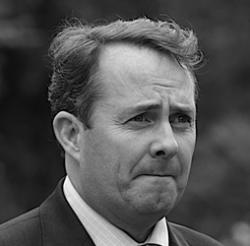MPs from both sides of the House took the Charity Commission to task over its handling of the Atlantic Bridge affair yesterday, with Conservatives accusing it of bias against right-leaning organisations and Labour saying it was not tough enough.
The Commission’s chair Dame Suzi Leather and chief executive Sam Younger were giving evidence on the work of the Charity Commission before the Public Administration Select Committee.
Conservative MPs Robert Halfon and Charlie Elphicke challenged the pair over why right-leaning outfits Atlantic Bridge, the Smith Institute and the Centre for Social Justice are not allowed to be charities when IPPR, the left-leaning think tank, is permitted to be one.
Elphicke said: “My clear impression is there is a cause-related issue within the Charity Commission.”
Halfon added: “There is a view that the Charity Commission is more lenient to charities on the left and much harsher with those on the right.”
Dame Suzi explained that think tanks have to maintain a degree of balance and neutrality and Younger added that Atlantic Bridge had never published any research in pursuit of its charitable purposes, but both admitted the issue is a difficult one.
Dame Suzi said: “Over the years we have had quite tricky questions raised about particular think tanks and they have not all been on one side, at all. But it is a controversial area and I have suggested we look at think tanks generically in the next year or so.”
She went on: “In the context of requiring information from think tanks it might be worth considering more transparency around sources of funding, because where organisations are getting their funding from might help us make those difficult judgements.”
Labour MP Paul Flynn steered the discussion back to Atlantic Bridge, asking: “Did it occur to you that a so-called charity set up by Liam Fox (pictured), and supported by William Hague, George Osborne, and Michael Gove, might possibly have a political purpose?”
Dame Suzi responded: “Think tanks can be bona fide educational charities, but the crucial thing is whether their objects are right and whether their activities reflect those objects. In this case they absolutely didn’t.” She said it is a “credit to the regulation of charities that Atlantic Bridge is no longer a charity” and its removal from the Register sends a message to other charities that they cannot operate in such a way.
But Flynn disagreed, suggesting that by simply allowing the trustees to say they were ignorant of the rules and close the charity down without any restitution, meant that they “got off scot-free” and sends the message to others that they can get away with bad behaviour.
Sam Younger said that the Commission might reopen the investigation into Atlantic Bridge if it was presented with evidence of “fundamental dishonesty”.
Pressed on whether the Commission would make public the name of any charity that received any remaining assets from Atlantic Bridge, Dame Suzi said: “Our understanding is that when they have paid all their liabilities, tax and otherwise, they will be left with a very small sum of money.” This would be passed to a similar charity and that will “of course” be made public, she said.









